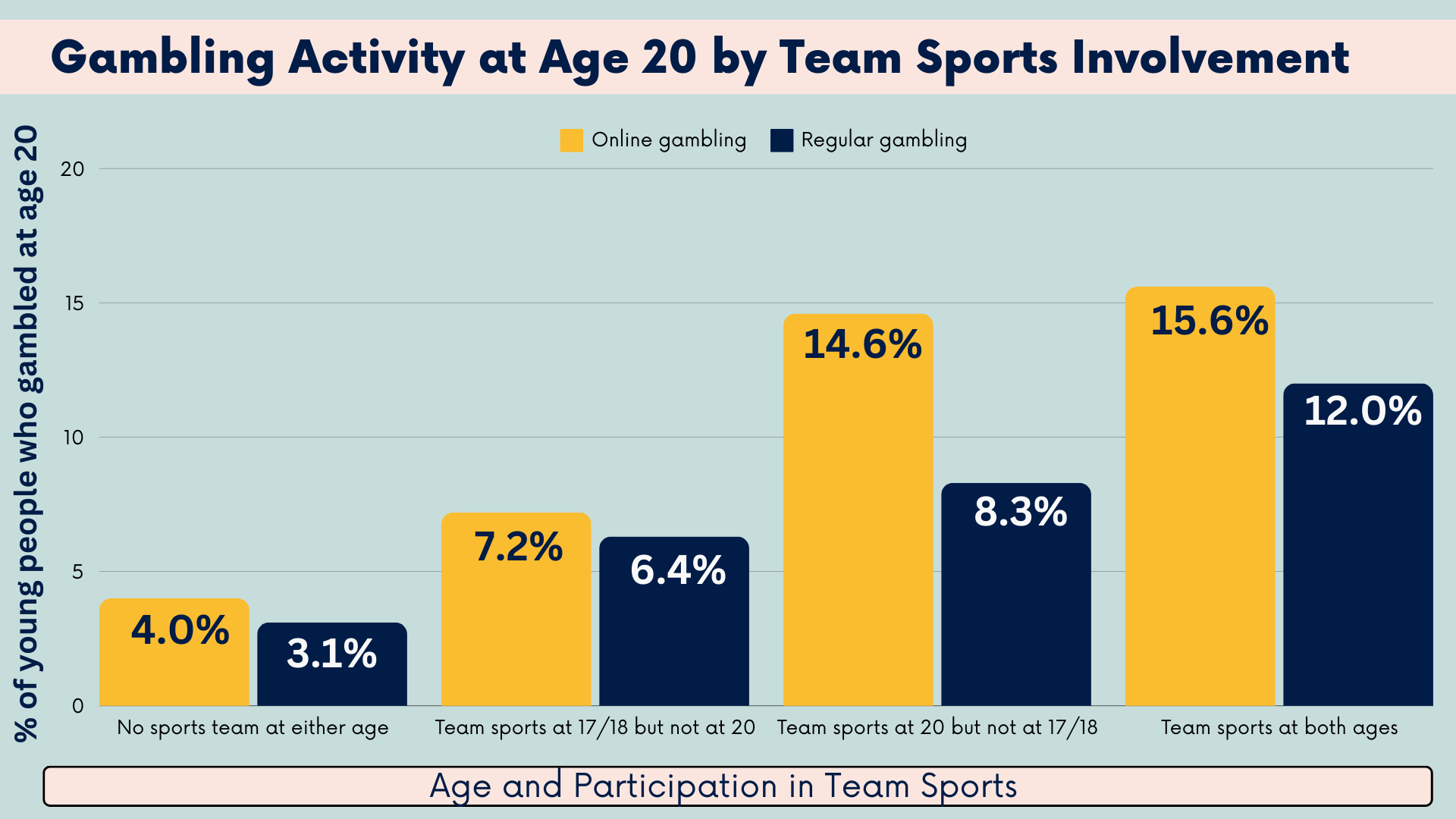Editor’s note: This month’s WAGER was written by Kiran Chokshi, a high school senior from New York who’s interested in research about sports betting.
Many of us participated in team sports when we were younger, and some still play. Gambling has become increasingly present in sports in recent years as a result of the U.S. Supreme Court’s May 2018 decision, which expanded sports betting in the U.S. Researchers have begun to examine gambling behaviors among athletes themselves, and an open question is whether adolescent team sport participation might make one more likely to gamble later in life as a young adult. This week, The WAGER reviews a study by Brendan Duggan and Gretta Mohan which examined the associations between young people’s gambling behaviors and participation in team sports.
What were the research questions?
(1) Does exposure to a team sports environment in late adolescence lead to a greater likelihood of engagement in gambling as a young adult? (2) Are there gender differences in this relationship?
What did the researchers do?
The researchers collected data from Growing Up in Ireland (GUI), a longitudinal study with 2 waves of data for 5,190 participants born in 1998. Participants were asked in both waves (at age 17 or 18 in 2015 – 2016, and at age 20 in 2018 – 2019) if they participated in team sports, and also if and how often they participated in gambling activities online or in person. Participants who reported gambling once a month or more were considered to be regular gamblers.
What did they find?
The researchers found that about one-third of participants took part in team sports, and males were more likely than females to play team sports and gamble at both waves. For both males and females, team sport participation significantly predicted future gambling engagement, both in terms of online gambling and regular gambling behavior. Participants who took part in team sports at both ages 17/18 and at age 20 had 2.44 higher odds of engaging in online gambling and 2.99 higher odds of being a regular gambler at age 20, when compared to participants who did not engage in team sports at either wave. When looking at the sample of males only, these relationships were stronger; males who participated in team sports at both waves had 3.8 higher odds of online gambling and 4.02 higher odds of gambling regularly, when compared to males who did not play team sports in both waves.

Figure. Figure shows the percentage of participants engaging in online or regular gambling based on their participation in team sports. Total N = 5,190. Adapted from Duggan & Mohan (2022).
Why do these findings matter?
Many professional sports teams and leagues are embracing betting and collaborating with sportsbooks, with some going so far as to sign sponsorship deals. Although gambling is prohibited to some extent among athletes at most levels of competition, problem gambling is a potential risk among amateur and professional athletes. The results from this study highlight how adolescent team sport participation predicts future online and land-based gambling, which could potentially lead to Gambling Disorder. Interestingly, many prevention groups, such as the New York State Office of Addiction Services and Supports, recommend participation in team sports, clubs, and community groups as a positive outlet; however, this research suggests that kids who are playing sports might benefit from targeted public health programs about problem gambling. Future research should test the effectiveness of these prevention programs among amateur and elite athletes alike.
Every study has limitations. What are the limitations in this study?
Although the sample size in this study was large, all of the participants were from Ireland, so it’s unclear if these findings are generalizable to people in other countries with different gambling practices. The data in this study was also self-reported, so might under- or over-report actual gambling behaviors. A more specific limitation of the study is that it did not track the amount of gambling spending per person, so the authors were unable to determine how much money each participant spent or lost while gambling.
For more information:
If you or anyone you know has a gambling problem, visit the National Council on Problem Gambling for tools and resources to help. Resources for preventing underage gambling are also accessible through YouthDecide. For additional resources, including gambling and self-help tools, visit our Addiction Resources page.
— Kiran Chokshi




